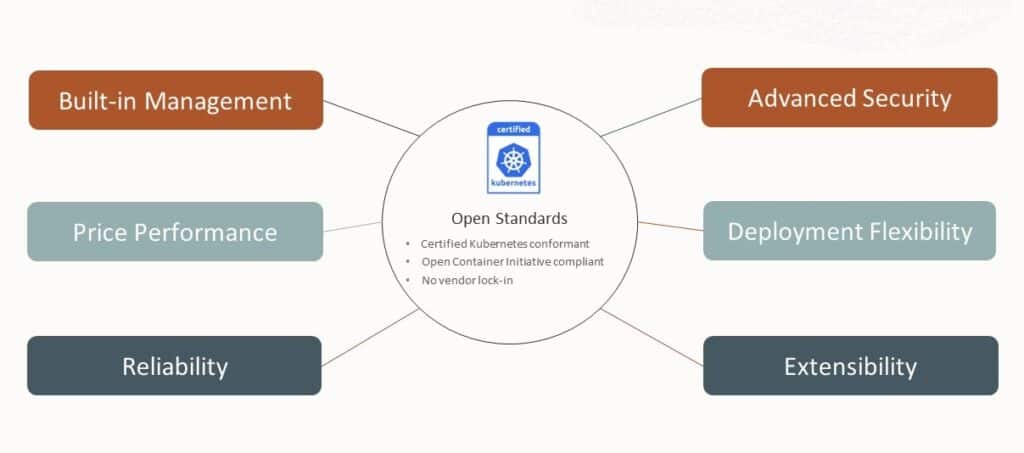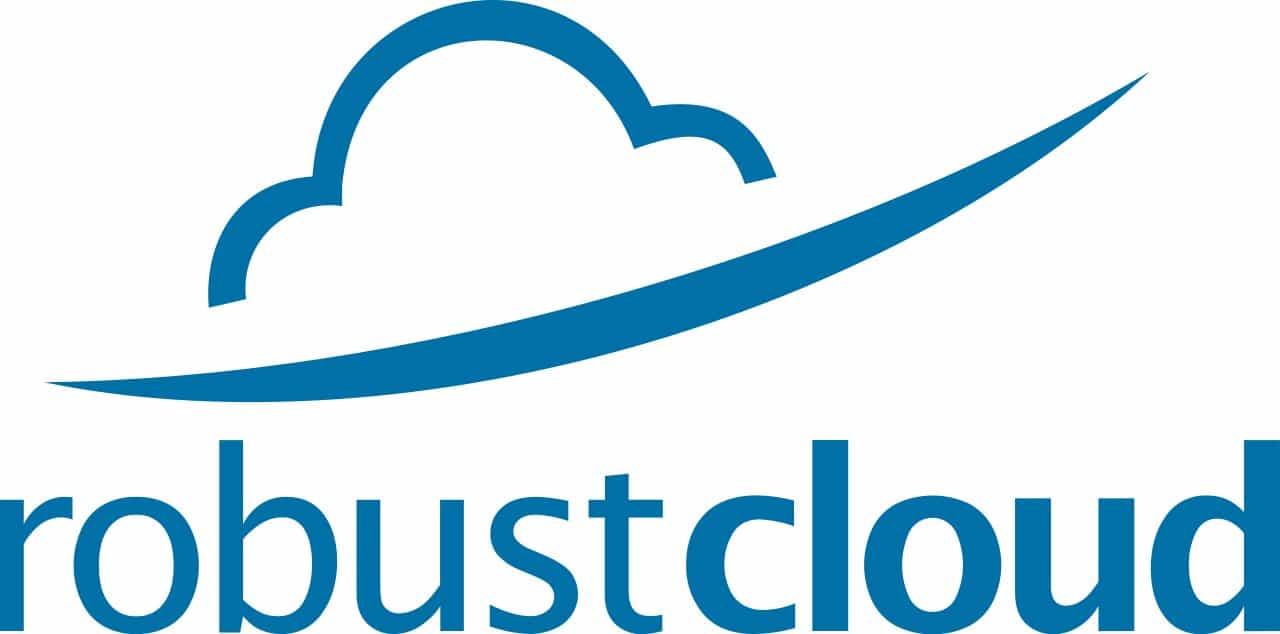Oracle Cloud Infrastructure (OCI) has added new features to its managed service for large-scale Kubernetes deployments. This blog post covers how these features help customers adopt a container-first journey in the transformation journey.

Background: As container adoption has grown, so has the use of the open-source container orchestration system Kubernetes. When enterprises reach that stage of managing multi-container applications at scale, the complexity of managing Kubernetes environments increases. This leads to the demand for solutions that automate the management of Kubernetes features like nodes, pods, services, and deployments.
Oracle Cloud Infrastructure (OCI) is enhancing its Oracle Container Engine for Kubernetes (OKE) to improve the reliability, efficiency, and simplicity of large-scale Kubernetes environments while reducing costs. New updates include Virtual Nodes for a serverless Kubernetes experience, Add-Ons’ Lifecycle Management for greater flexibility in managing supporting software, and Workload Identity for improved security and access controls. The new capabilities are expected to lower the skills barrier and management burden on IT teams, allowing businesses to focus on growth.
The new features were shared by Vijay Kumar, VP of Product Marketing, OCI, in a recorded conversation. Vijay shared Oracle’s pricing strategy that helps customers overcome cloud expense surprises with consistent pricing regardless of location. Below are some of these new features.
Serverless Kubernetes with Virtual Nodes: Enterprises constantly look to simplify infrastructure management with seamless updates and enforced security to direct more IT spending in building applications. Oracle launched a new serverless container service included in the Oracle Container Engine for Kubernetes (OKE) service designed to make it easier for companies to run applications in the cloud by eliminating the need to manage the underlying infrastructure. One of the features in this announcement that would help users is more robust isolation that improves security for businesses running sensitive applications. Overall, Serverless Kubernetes with Virtual Nodes will help companies ensure their applications run reliably at scale.
Add-Ons’ Lifecycle Management: To manage the complexity of managing a Kubernetes environment, customers use a variety of add-ons, such as database operators and certificate managers. This announcement offloads the management of typical cluster operational software to Oracle, allowing customers to tailor configurations to match application needs. For example, Oracle can update the add-on as new versions are released over time, allowing customers to focus on core business objectives. In addition, users can also customize the add-ons or opt out of them altogether.
Other features: The support for preemptible instances will give customers an additional 50 percent discount off on-demand VM pricing. Workload Identity enables organizations to improve security posture and lower management overhead with pod-level identity and access management controls.
Summary:
In this announcement, OCI added new features to its managed service for large-scale Kubernetes deployments, aiming to make them more reliable, efficient, and straightforward. The enhancements include virtual nodes, add-on lifecycle management, and workload identity. Practitioners with Kubernetes skills can use their knowledge when using OCI as the platform, which is vital to customers considering the shortage of skills in the industry. OCI’s OKE has attracted large global organizations such as Thomson Reuters, Xactly, GoTo, SoundHound, Wiz, 8×8, and Nomura Research Institute. These customers shared that they use OKE for mission-critical applications with reduced costs in their cloud-native journeys.
For future capabilities planned, Oracle shared that the direction would continue to address simplifying managing complex and agile environments at a lower overall cost to customers.